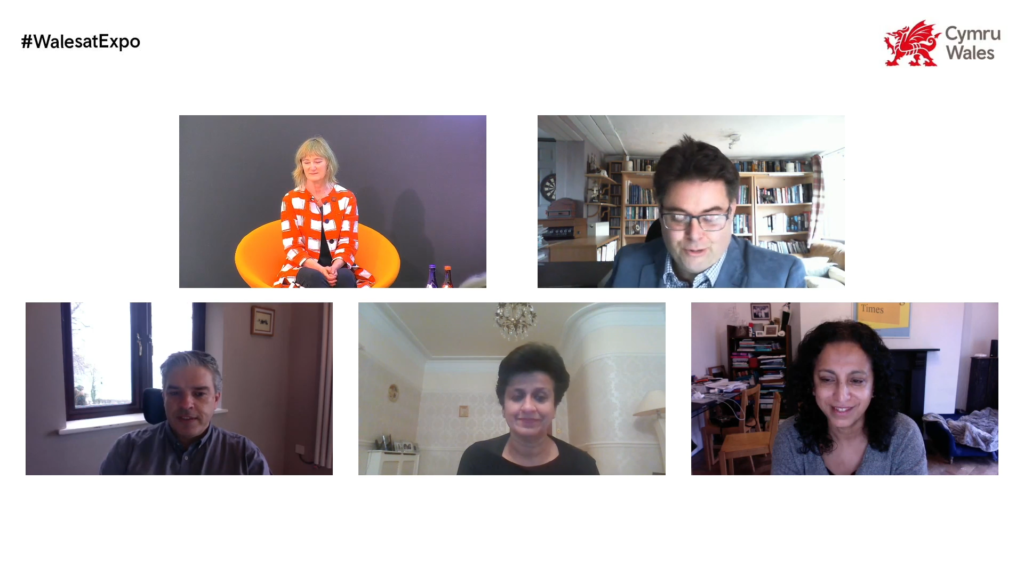Posted February 03rd 2022
Life Science Wales Virtual Summit’s Mental Health Digital Science talk also comprised a panel featuring Professor Ann John of Swansea University and Child and Adolescent Psychiatrist Professor Alka Ahuja MBE.
The online talk broadcast to a global audience centred around the use of technology and digital methods to improve accessibility for researchers and subject groups, enriching data, and potentially leading to better mental health diagnoses.
Professor Walters highlighted three areas in digital health that will lead to practical improvements for mental health:
- Including more data from minority groups in routine data collection.
- A better data infrastructure for researchers, connecting research silos across Wales and beyond, including genetic data.
- Connecting with the pharmaceutical industry to deliver new treatments and improve mental health while ensuring patient and public consent and consultation.
Current research methods lack diversity
“Data collected in mental health research can include clinical, sociodemographic and lifestyle information together with biological samples including DNA”, explained Professor Walters.
“Researchers use this data to reach their conclusions about the causes of mental illness, how best to diagnose people, how to design health services or to assess new therapies.
“The people from whom we derive this data is important because the findings from one set of people don’t necessarily apply to other groups.”
Professor Walters elaborated further on inclusion of minority groups:
Much existing research is conducted in people not representative of the wider population, and typically this means underrepresentation of certain groups of people.
“Those groups are often disenfranchised in other ways, so if we’re going to be able to apply our research findings widely, we must include people from these groups in our research.”
“In genetic research, as in all research, there’s an underrepresentation of non-European ethnic groups, so we’re working with colleagues in India, Africa and internationally to support them and set up ways to include people from those areas and ethnicities to international research datasets.”
Digital research brings people together
On digital in research bringing better connections, he continued, “Working together certainly helps us develop a better understanding.”
Fellow panellist Professor John added, “Ten years ago we were working separately. Now we’re bringing each other’s data together to solve more complex problems in more complex ways, at a low cost too, as data is collected by researchers as a matter of course.”
Professor Walters highlighted the challenges in research when connecting with industry:
We’re working to bring together brain and mental health academics with the NHS and industry to improve mental health and use data generated by all parties in a secure and ethical way.
“The pipeline from initial research to a new treatment is a long and expensive one, and this is hampered in mental health because our knowledge of the causes of conditions is limited.
“Advances in genetics and data science are improving this situation and have motivated industry to become interested and more involved in mental health therapeutic developments.
“One way we’re working with them is to use genetic findings to identify novel targets for the development of new medications.

Solving research problems with technology
Professor John emphasised the need for larger research data cohorts for greater impact more widely, “Within the National Centre for Mental Health (NCMH) we have a cohort that’s focused around diagnosed disorders, so that means we now have the scale to work effectively with industry.
“We also have the Wolfson Centre for Young People’s Mental Health, so the infrastructure is really at scale that can help translate that work into policy and practise.”
Professor Sahuja, who helped establish the NHS Wales Video Consulting Service, said of the challenges the COVID-19 pandemic has presented to research, “The pandemic has caused a loss of routines, loss of family and friends, unemployment and loneliness, but what we’ve been able to do in Wales is generate data that works.
Technology is here to stay and we’re now thinking about how technology can solve problems with a shift in mindset to reach out to those who are most vulnerable.
Professor Walters closed with emphasising the need to build on the work that’s been done so far, “We want people to engage with us: Those who have ideas or clinical datasets, please join us and the international consortia that some of us lead and are so important to advancing research.
“We need to support and nurture early-career researchers to develop international networks. We’re also keen that our mental health datasets are accessed and used, and Wales has unique resources in this respect, so please get in touch.”
“We’re really keen to engage, right from the basic science to the translational work, all of which is important if we are to tackle mental illness together.”
Watch the talk
Find out more
- NCMH | Professor James Walters
- Life Sciences Hub Wales blog | Blog
- Expo 2020 | Expo 2020 Dubai
Sign up now and receive new blog posts to your inbox.
